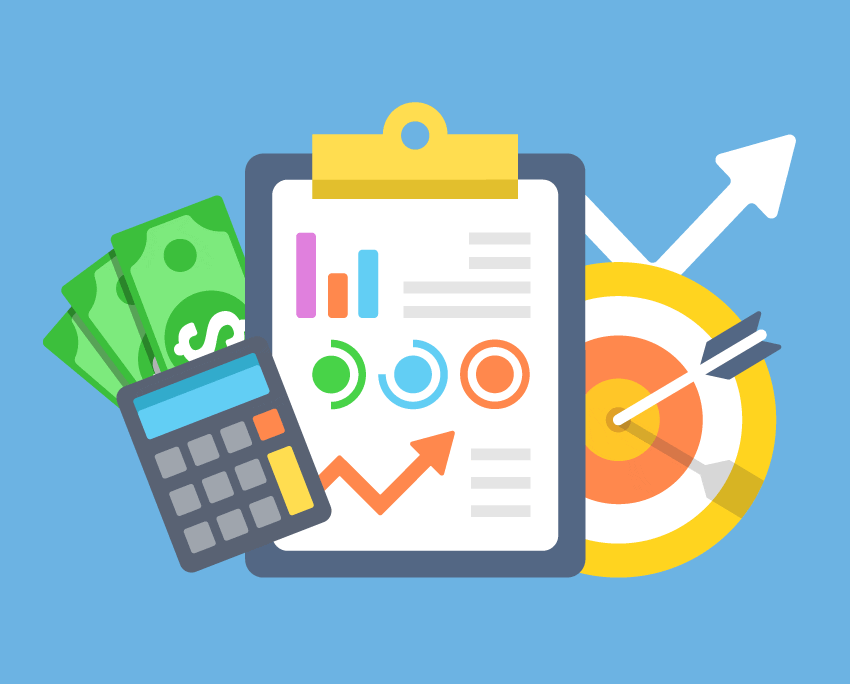Explore web search results related to this domain.
In this article, we offer practical tips for creating and maintaining a budget that suits your household's needs. A budget is a plan that helps you manage your money. It shows how much money goes in and out of your pocket each month, and helps you identify areas where you can save ...
In times of financial uncertainty, careful budgeting can be critical to keep your money in order. In this article, we offer practical tips for creating and maintaining a budget that suits your household's needs. A budget is a plan that helps you manage your money. It shows how much money goes in and out of your pocket each month, and helps you identify areas where you can save money.Understand your income and expenses: The first step in creating a budget is identifying how much you earn and spend each month, as well as any extra income and expenses. Know how to track these numbers with help from the Consumer Financial Protection Bureau. Set clear financial goals: Whether it's saving for your children's education, buying a home, or planning for retirement, setting financial goals helps you stay focused and motivated.Use helpful tips from the Federal Trade Commission (FTC) to set and achieve your financial goals. Prioritize your expenses: Not all expenses are equally important. Prioritize spending on your basic needs, such as housing, food, and healthcare. Evaluate which expenses, such as eating out or subscriptions, you can reduce. Learn how to prioritize your expenses. Plan for the unexpected: An essential part of any budget involves considering unexpected expenses.Explore Department of Labor’s practical tools to develop a savings plan and build an emergency fund. Monitor your spending habits: Use tools like the Consumer Financial Protection Bureau's bill calendar to keep track of when you make payments and how much you pay for each item. This will help you avoid late fees and improve your credit. Review and adjust your budget regularly: The state of the economy and your personal finances can change from time to time.


A budget helps create financial stability. By tracking expenses and following a plan, a budget makes it easier to pay bills on time, build an emergency fund, and save for major expenses such as a car or home.
Suzanne is a content marketer, writer, and fact-checker. She holds a Bachelor of Science in Finance degree from Bridgewater State University and helps develop content strategies. ... Saving vs. Investing: What Teens Should Know ... Credit Cards vs. Debit Cards ... A budget is a spending plan.A budget uses information about what you spent last month to make a plan about what you'll spend this month. Having a budget keeps your spending in check and makes sure that your savings are on track for the future. Budgeting can help you set long-term financial goals, keep you from overspending, help shut down risky spending habits, and more.A budget can also set you on the right path to achieving your financial goals, spending within your means, saving for retirement, building an emergency fund, and analyzing your spending habits. A budget is a personal spending plan that takes into account expected income and expenses for a specified period of time.Budgeting is a critical financial skill that is important for everyone, regardless of their level of financial knowledge. Learn how to budget, and the reasons why you should budget.
A budget uses information about what you spent last month to make a plan about what you'll spend this month. Having a budget keeps your spending in check and makes sure that your savings are on track for the future. Budgeting can help you set long-term financial goals, keep you from overspending, ...
Suzanne is a content marketer, writer, and fact-checker. She holds a Bachelor of Science in Finance degree from Bridgewater State University and helps develop content strategies. ... Saving vs. Investing: What Teens Should Know ... Credit Cards vs. Debit Cards ... A budget is a spending plan.A budget uses information about what you spent last month to make a plan about what you'll spend this month. Having a budget keeps your spending in check and makes sure that your savings are on track for the future. Budgeting can help you set long-term financial goals, keep you from overspending, help shut down risky spending habits, and more.A budget can also set you on the right path to achieving your financial goals, spending within your means, saving for retirement, building an emergency fund, and analyzing your spending habits. A budget is a personal spending plan that takes into account expected income and expenses for a specified period of time.Budgeting is a critical financial skill that is important for everyone, regardless of their level of financial knowledge. Learn how to budget, and the reasons why you should budget.
:max_bytes(150000):strip_icc()/GettyImages-1337933770-3d431c51f6e942d4b12280a8f1bfbefe-a3b94cde57b7418aad8cfc4e0b505621.jpg)

Take the headache out of money management with these top budgeting apps.
Take the headache out of money management with these top budgeting apps. ... Liliana Hall is a writer for CNET Money covering banking, credit cards and mortgages. Previously, she wrote about personal credit for Bankrate and CreditCards.com. She is passionate about providing accessible content to enhance financial literacy.She has over 10 years of experience in personal finance and previously wrote for CBS MoneyWatch covering banking, investing, insurance and home equity products. She is passionate about arming consumers with the tools they need to take control of their financial lives.Courtney Johnston is a senior editor leading the CNET Money team. Passionate about financial literacy and inclusion, she has a decade of experience as a freelance journalist covering policy, financial news, real estate and investing. A New Jersey native, she graduated with an M.A.Previously, she wrote about personal credit for Bankrate and CreditCards.com. She is passionate about providing accessible content to enhance financial literacy. She graduated from the University of Texas at Austin with a bachelor's degree in journalism, and has worked in the newsrooms of KUT and the Austin Chronicle.

It ensures you have the funds to ... other financial and savings goals. In short: Budgets allow you to get the most out of your paycheck. Without one, there's a chance you could run out of money before your next pay date. · A budgeting plan is critical if you want to stay on top of bills, pay off debts, or save for the future, ...
It ensures you have the funds to cover your essentials — like housing, groceries, utilities, and your monthly debt payments — while also working toward other financial and savings goals. In short: Budgets allow you to get the most out of your paycheck. Without one, there's a chance you could run out of money before your next pay date. · A budgeting plan is critical if you want to stay on top of bills, pay off debts, or save for the future, and there are several ways to go about it.Use these steps when making a personal finance budget for the first time: · Examine your income and expenses so that you can understand how much you're making, how much you're using, and if you're spending more than you're making · Consider whether you have any savings goals and factor that into your plan · Choose your approach to budgeting, such as the 50/30/20 rule or the envelope system, when determining how much to save each monthIf you'd like to travel out of the country, you might decide to save up money for the year so you can spend a year abroad. The next step is to create your budget — a specific plan for how you'll use your earnings each month and eventually achieve your financial goals.A budget can help you stay on top of expenses, pay off debts, and achieve your financial goals. There are several strategies for budgeting. Each has its own unique pros and cons. Checking in on your budget, adjusting it, and analyzing your spending habits regularly is critical. A budget is, at its simplest, a plan for how you'll spend your earnings.

EveryDollar is a simple budgeting app that offers straightforward budget planning and tracking features—and not much else. Its one of the few budgeting apps available with a free version, but without paying, you’ll be sorely missing auto-sync of your transactions, goal planning, and financial ...
EveryDollar is a simple budgeting app that offers straightforward budget planning and tracking features—and not much else. Its one of the few budgeting apps available with a free version, but without paying, you’ll be sorely missing auto-sync of your transactions, goal planning, and financial reporEveryDollar is a simple budgeting app that offers straightforward budget planning and tracking features—and not much else. It’s one of the few budgeting apps available with a free version, but without paying, you’ll be sorely missing auto-sync of your transactions, goal planning, and financial reporting.EveryDollar is by far the better budgeting app, even the free version. But if you want reporting and investment tracking, Empower is a better choice. Plus Empower has some unique investment planning tools like a retirement fee analyzer and retirement planner. Empower makes money upselling you toward its financial planning services, but it is one of the best free budgeting and investing apps available.In addition to these two plans, you can get access to EveryDollar Premium if you upgrade your Ramsey Solutions account to a Ramsey+ account. This allows access to Financial Peace University (Dave Ramsey video training), EveryDollar Premium, and the Ramsey Solutions tax filing app SmartTax.

Focus your spending on the elements you cherish most. If you need help breaking down costs, check out apps focused on wedding planning. Budgeting is a process that begins with identifying your financial goals, along with observing your spending and savings habits.
Budgeting apps are a great tool to help ensure you’re living your budget, not just planning one. They can provide insights into your spending habits, identifying where your money goes and where you can make improvements. As with any app, whether or not it “works” depends largely on how you use it. A challenge with budgeting generally—whether managed with an app, a spreadsheet, or more manual means—is committing not only to having a budget but to making your financial decisions in line with it.Having no financial plan or budget in place can cause stress and overwhelm you, leading to increased spending, living beyond one’s means, and perpetuating destructive cycles.Looking for the best budgeting apps? Doing more banking from your phone? Here are the three best budgeting apps to help you manage your personal finances.Create a weekly plan to make recipes that share ingredients or use pantry staples. Meat is a significant expense, so adopting a meatless Monday meal can also help lower grocery costs. Buying in bulk rather than single-use packaging can also save you some cash. A vacation can be an exciting savings goal if you have some breathing room in your budget.
What is a budget? A budget is a plan for every dollar you have. Using your take-home pay as a starting point, a budget organizes your expenses, savings goals and other financial obligations into a manageable system that can provide more financial freedom and a less stressful life.
Step 1. Figure out your after-tax income Step 2. Choose a budgeting system Step 3. Track your progress Step 4. Automate your savings Step 5. Practice budget managementIf you find that the initial budgeting system you choose isn’t working for you, consider trying a different strategy. The budget you choose doesn’t have to last forever. ... NerdWallet Planning powered by Quinn can help you build a personalized plan to get rid of debt, save more of your paycheck, and invest in your future.If there's no money for fun, you'll be less likely to stick with your budget. Use 20% of your after-tax income to put something away for the unexpected, save for the future and pay off debt balances (paying more than minimums). Make sure you think of the bigger financial picture; that may mean two-stepping between savings and debt repayment to accomplish your most pressing goals.Planning and strategyPlanning and strategyBest investments right nowEstate planningFinancial planning · Investing and retirement calculatorsRetirement calculator401(k) calculatorRoth IRA calculatorInvestment return calculatorSocial Security benefits calculator Small business ... Funding your businessSmall-business loansSBA loansBusiness lines of creditBusiness grantsStartup business loans · Managing business financesBusiness bank accountsBusiness credit cardsAccountingPayroll & HRBusiness taxes

Your budget should show what your ... that occur regularly but not every month, such as car maintenance. Include a savings category in your budget and aim to save an amount that feels comfortable to you....
Your budget should show what your expenses are relative to your income, so that you can plan your spending and limit overspending. Be sure to factor in expenses that occur regularly but not every month, such as car maintenance. Include a savings category in your budget and aim to save an amount that feels comfortable to you.It helps you anticipate potential obstacles and then plan specific actions to address them. Here’s how put one together. Set a small, achievable short-term goal for something that’s fun and goes beyond your monthly budget, such as a new smartphone or holiday gifts. Reaching smaller goals—and enjoying the reward you’ve saved for—can give you a psychological boost, making the payoff of saving more immediate and reinforcing the habit.For example, a common budgeting question is whether to pay down debt, save or invest. This interactive tool can help you decide. Or let’s say you know you’re going to need to replace your car in the near future. You could start putting away money for a new vehicle now. Just be sure to incorporate long-term goals, too. It’s important that planning for retirement doesn’t take a back seat to shorter-term needs.Review your budget and check your progress every month. That will help you not only stick to your personal savings plan, but also identify and fix problems quickly. Understanding how to save money may even inspire you to find more ways to save and hit your goals faster.

By keeping tabs on your expenses and giving yourself a plan to follow, budgeting makes it easier to meet your financial goals. Savings, meanwhile, are important because living paycheck to paycheck isn’t viable in the long-term.
You can then either decide how to utilize any surplus funds or find ways to reduce your expenses if they exceed your income. There are several budgeting plans available that can help you allocate an appropriate amount of money to each type of expense. Learn More Five Rules to Improve Your Financial HealthThese Are the 5 Secrets to Budgeting Better ... The 5 U.S. Cities With the Highest Minimum Wage ... J.B. Maverick ... What Is Discretionary Income? Vs. Disposable Income and Example ... Chapter 7 vs. Chapter 11: What's the Difference? ... Loans Insurance Taxes Banking Mortgage Credit & Debt Home Ownership Family Finances Retirement Planning Wealth Financial Literacy Credit Cards Financial FraudBudgeting allows you to create a plan to spend your money and save responsibly. Browse Investopedia’s expert-written library to learn more.Discretionary Income Budget Savings Financial Health Inflexible Expense Quality of Life Showrooming Average Propensity to Consume ... Discretionary income refers to a portion of an individual’s income that can be spent, invested, or saved after paying for personal necessities and taxes.
:max_bytes(150000):strip_icc()/investopedia-social-share-default-ab113c8afd9a439dbc4c68b1926292f4.png)

The best budgeting tool is one you'll use regularly to track expenses and plan for future spending. Not everyone relishes the idea of proactively managing their money. However, creating a budget – and sticking to it – are key first steps toward reaching financial goals large and small.
American Consumer Credit Counseling, a nonprofit credit counseling provider, has sheets for household budgeting, expense tracking and budgeting for specific needs. Meanwhile, Regions Bank has free worksheets anyone can download from its Next Step Financial Education website, including a personal spending plan worksheet and daily spending tracker.Having the right tools is essential to tracking expenses and monitoring income but you don’t need expensive software to accomplish that.Be generous with holiday tips if you can, experts say, but don't stray from your budget. Maryalene LaPonsieDec. 10, 2024 · Focus on creating an experience for your holiday gathering, which can control costs. Aja McClanahanDec. 10, 2024 · Using artificial intelligence can relieve gifting stress while helping you save time and money. Erica SandbergDec. 9, 2024 · While sustainable items can cost more, with planning and commitment you can shop according to your budget without compromising value systems.“There are many different budgeting methods and what we find is that different types of budgets work best for different personality types,” says Kendall Meade, a certified financial planner with SoFi.

Stay on top of your finances in under 5 minutes per week. Check your custom budgeting plan — anytime, anywhere! ... See where your money is going and discover places to save.
Some of our other top picks have both online and mobile platforms for more convenience. If you want a shared budgeting plan on both computer and mobile, some joint bank accounts come with budgeting features. ... Monarch Money may be worthwhile if you are looking for a budgeting app that helps you save for financial goals and create a budget.It's a great option if you don't want to pay a fee. It also allows you to have individual and shared finances. ... Monarch Money is an overall solid option if you prioritize creating monthly budgets and saving for individual savings goals. The main downside of the app is that it doesn't offer a free plan.Rocket Money has a free plan that's $0. The Premium plan has a 7-day free trial; after the free trial, you'll have to pay around $6 to $12 per month (the lower-price plans are billed annually instead of monthly). ... Honeydue is a budgeting app designed specifically for couples and it's also a free budgeting app. The sign-up process is short and simple — you'll create an account by setting up your email, then invite your partner to Honeydue. Honeydue allows you to see both your individual and shared finances in one place.Several budgeting apps also provide reports for broader areas of your finances. For example, you might be able to view your cash flow balance over several months or how your money in your retirement plans has grown over time.
Budgeting helps you manage your money on a regular basis so you can spend money stress-free, knowing you've planned for it. Financial planning, on the other hand, is a broader look at your entire financial picture over time. It can show you how and where you’ll save money to reach your goals ...
Budgeting helps you manage your money on a regular basis so you can spend money stress-free, knowing you've planned for it. Financial planning, on the other hand, is a broader look at your entire financial picture over time. It can show you how and where you’ll save money to reach your goals and can help you stay on track if something unexpected happens.Learn how budgeting differs from financial planning, whether you should do your budget or financial plan first, and how to get budgeting and planning help.Financial planning can mean different things to different people. Is it as simple as knowing how much of your money is coming in versus going out? That’s an important element of financial planning — but that’s really just budgeting.A financial plan (and a budget really) depends on one key component to make it work: income. And there’s a lot that can throw that income out of whack — anything from a large, unexpected expense, to being out of work for an extended period of time.

Budgeting focuses on maintaining or eliminating certain spending habits. This may include something like spending less money on entertainment or putting more money into your savings account each month. Financial planning focuses on reaching longer-term financial goals, such as paying off debt ...
If you're interested in budgeting or financial planning, learning more about how these processes work can help you achieve your short- and long-term financial goals.In this article, we discuss what budgeting and financial planning are and the key differences between them, and we provide tips on how to use each process.If you choose to use your budget to reduce unwanted expenses, you can use any surplus money to work toward accomplishing short- or long-term financial goals. To create your budget, many people use a planner, pen and paper or a spreadsheet on a computer.Related: 8 Budgeting Methods To Help You Reach Your Financial GoalsFinancial planning can help you because it allows you to set measurable targets you can reach, and it guides you on how to use your money when you make important financial decisions.Related: 6 Types of Financial Careers (Plus Job Profiles and Salary) Although budgeting and financial planning are methods that help you accomplish financial goals, they have some important differences, including:Budgeting focuses on maintaining or eliminating certain spending habits. This may include something like spending less money on entertainment or putting more money into your savings account each month. Financial planning focuses on reaching longer-term financial goals, such as paying off debt or buying a house.Related: Effective Goal Setting: 7-Step Process for Success

A budget helps you manage your day-to-day finances, but financial planning provides a broader perspective and helps you plan for the future. The difference between budgeting and financial planning can help you create an effective long-term and short-term financial strategy.
The process of budgeting is to track your income and expenses and create a spending plan. You can manage your cash flow effectively and stay within your means. A budget helps you identify areas where you may be overspending and adjust your spending habits accordingly. For short-term financial management, such as paying bills, saving for a vacation, or building an emergency fund, budgeting is a great tool.Financial planning and budgeting are critical components of a healthy financial life. A budget helps you manage your day-to-day finances, but financial planning provides a broader perspective and helps you plan for the future. The difference between budgeting and financial planning can help you create an effective long-term and short-term financial strategy.The goal of budgeting is to maintain or eliminate certain spending habits. You can accomplish this by spending less on entertainment or putting more money into your savings account. A financial planner focuses on achieving long-term financial goals, such as paying off debt or purchasing a home.Your budgeting progress may be tracked monthly, weekly, or even daily because it is based on your spending habits. The frequency of this tracking is far greater than how often you might track your progress toward your financial goals. As a result of financial planning, you track your progress toward your larger financial goals quarterly, semiannually, or every six months.

They are things like paying off ... plan. Consider sticking to these 11 goals to help relieve yourself from financial difficulties. You can set the greatest goals possible, but it’s pointless if it’s not grounded in reality. Listing your expenses and income gives you a clear grasp of what you have to work with. A credit counselor can show you how to create a budget and come up ...
They are things like paying off a mortgage or student loans and funding a retirement plan. Consider sticking to these 11 goals to help relieve yourself from financial difficulties. You can set the greatest goals possible, but it’s pointless if it’s not grounded in reality. Listing your expenses and income gives you a clear grasp of what you have to work with. A credit counselor can show you how to create a budget and come up with a reasonable plan to achieve your goals.Successfully transitioning out of the foster care system comes with unique financial needs and challenges. Setting up a budget, creating an emergency fund, and planning for stable housing are essential steps. Learning to manage expenses early on can build a foundation for a secure future.Use your budget to plug leaks in your financial ship. Hopefully, your tough, realistic, water-tight budget will show at least a handful of leftover dollars. Whatever that amount is, have it automatically directed into a separate account designed to address the first couple of things on your list of priorities. Monitor your progress. Make sure what you’re hitting your benchmarks. If you’re not, pause and evaluate what’s going wrong. Make a plan that prioritizes your goals.Setting financial goals can help you save money or pay off debt. Learn how to set financial goals and work with a credit counselor to achieve them.

Most people need some way of seeing ... of your finances and make it easier to save money for your goals. The trick is to figure out a way to track your finances that works for you. The following steps can help you create a budget plan....
Most people need some way of seeing where their money is going each month. Budgeting can help you feel more in control of your finances and make it easier to save money for your goals. The trick is to figure out a way to track your finances that works for you. The following steps can help you create a budget plan.Creating a personal budget is the key to gaining control of your money. Follow these simple steps from Better Money Habits to begin creating your individual budget.This is a good starting point for putting your plan into action. How it works: First, break down your fixed and variable expenses into things you need to have and things you want to have. For instance, if you drive to work every day, gasoline counts as a need. A monthly music subscription, however, may count as a want. This difference becomes important when you’re looking for ways to save money to reach your financial goals.Bank of America clients can access the Spending & Budgeting tool in Online and Mobile Banking to automatically categorize transactions for easier budgeting. ... Before you start sifting through the information you’ve tracked, make a list of your short- and long-term financial goals.


Looking for personalized investment advice? Compare the best online financial advisors, robo-advisors, and platforms to meet your goals.
Hybrid Models: Some online brokerages offer hybrid financial advice, combining automated investment advice and management through a robo-advisor and one-on-one consultation from a human advisor. ... SoFi Robo Investing offers individual and joint taxable brokerage accounts, traditional IRA, Roth IRA, and SEP IRA. SoFi® only has a 0.25% advisory fee, one-on-one consultations with CFPs, portfolio diversity, and goal-planning features.Betterment is a robust trading platform offering premium plans with unlimited access to CFPs through phone or email. Investors can use the platform's goal-setting feature, ESG investing, automatic rebalancing, and easy-to-use financial dashboard.You'll get access to fiduciary financial advisors for consultations or account management. It is our top pick for retirement saving and planning due to its extensive library of retirement planning resources, portfolio management services, and access to fiduciary advisors.Wealthramp is a personalized advisor matching service that helps people find reliable money advice. After answering a series of questions about your financial situations and goals, Wealthramp generates advisor matches based on your preferences. · Wealthramp's fiduciary advisors are fee-only and offer various general investing and estate planning services.

The capital budgeting process can involve almost anything from acquiring land to purchasing fixed assets such as a new truck or machinery. It always involves long-term financial planning for larger monetary outlays.
Companies often communicate between departments and rely on financial leadership to help prepare annual or long-term budgets. These budgets are often operational, outlining how the company’s revenue and expenses will shape up over the subsequent 12 months. Another aspect of this financial plan is capital budgeting.This is the long-term financial plan for larger financial outlays. Capital budgeting relies on many of the same fundamental practices as any other form of budgeting but it has several unique challenges. These budgets are often exclusively cost centers. They don't incur revenue during the project and must be funded from an outside source such as revenue from a different department.The capital budgeting process is a measurable way for businesses to determine the long-term economic and financial profitability of any investment project. It may be relatively easy for a company to forecast what its sales may be in the next 12 months but it's more difficult to assess how a five-year, $1 billion manufacturing headquarters renovation will play out. Businesses therefore need capital budgeting to assess risks, plan ahead, and predict challenges before they occur.A capital budget is a long-term plan that outlines the financial demands of an investment, development, or major purchase. A capital budget must be prepared to analyze whether the long-term endeavor will be profitable.

These professionals can help you ... you save money on taxes, increase investment returns, obtain risk-appropriate insurance, and more. · These professionals aren't one-size-fits-all, though, and finding the right one is critical to your success. Here's what you need to know about the best financial advisors and planners, and how to zero in on the best one for your goals and budget...
These professionals can help you achieve a wide range of short- and long-term goals — like having a comfortable retirement, funding your child's college tuition, or buying a house — along with potentially helping you save money on taxes, increase investment returns, obtain risk-appropriate insurance, and more. · These professionals aren't one-size-fits-all, though, and finding the right one is critical to your success. Here's what you need to know about the best financial advisors and planners, and how to zero in on the best one for your goals and budget.Robo-advisors typically won't help with budgeting, estate planning, tax planning, or other non-investment services. As Rob Burnette, an MRFC and chief executive officer of Outlook Financial Center in Troy, Ohio, explains, "Robo-advisors are only useful for the investment part of a financial plan."A financial advisor can help plan for retirement, build an investment portfolio, or budget to reach your financial goals.Find the right financial advisor for your needs with this comprehensive guide. Learn about credentials, fees, and questions to ask to make an informed decision.



:max_bytes(150000):strip_icc()/GettyImages-1337933770-3d431c51f6e942d4b12280a8f1bfbefe-a3b94cde57b7418aad8cfc4e0b505621.jpg)


:max_bytes(150000):strip_icc()/investopedia-social-share-default-ab113c8afd9a439dbc4c68b1926292f4.png)




